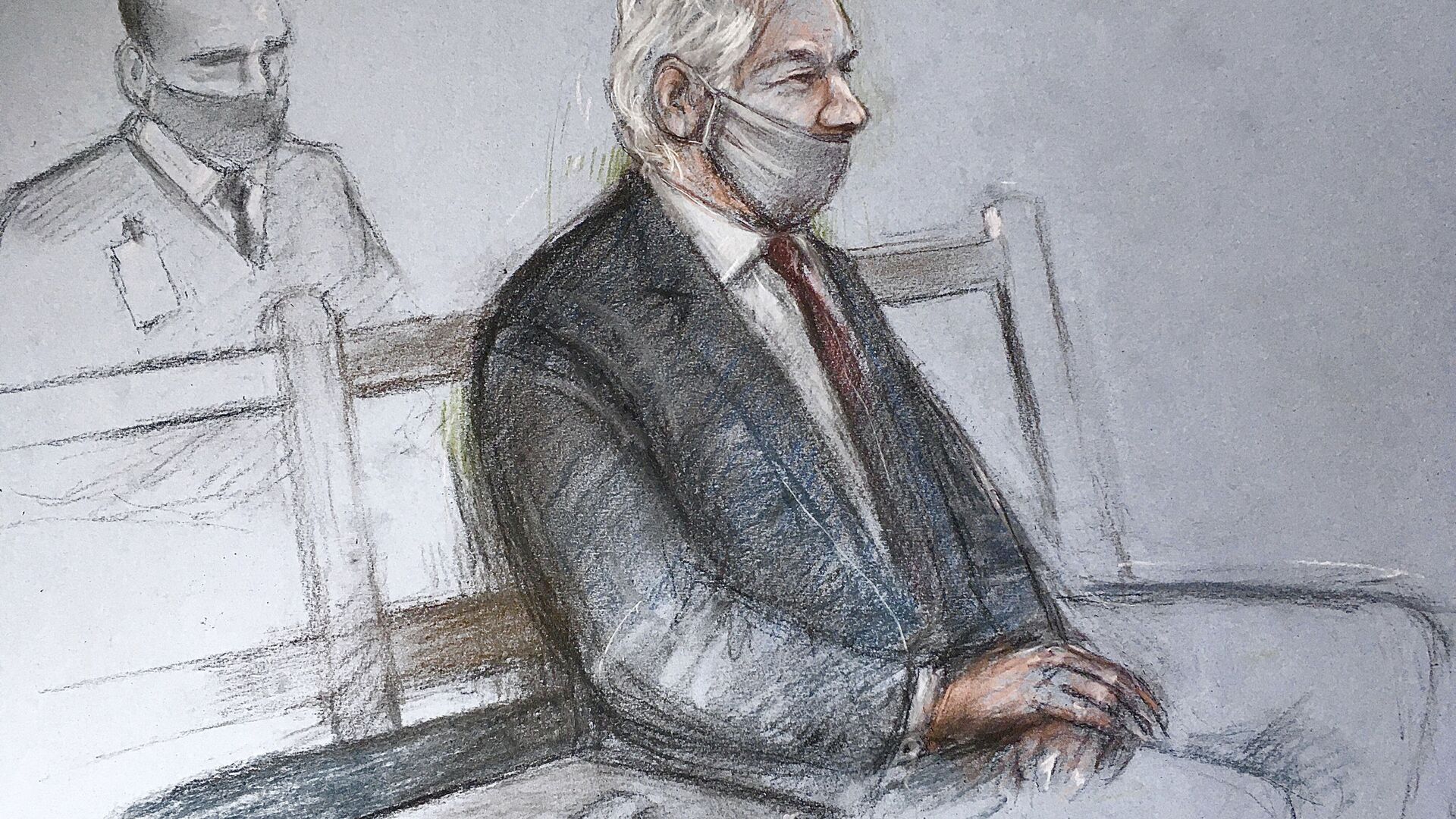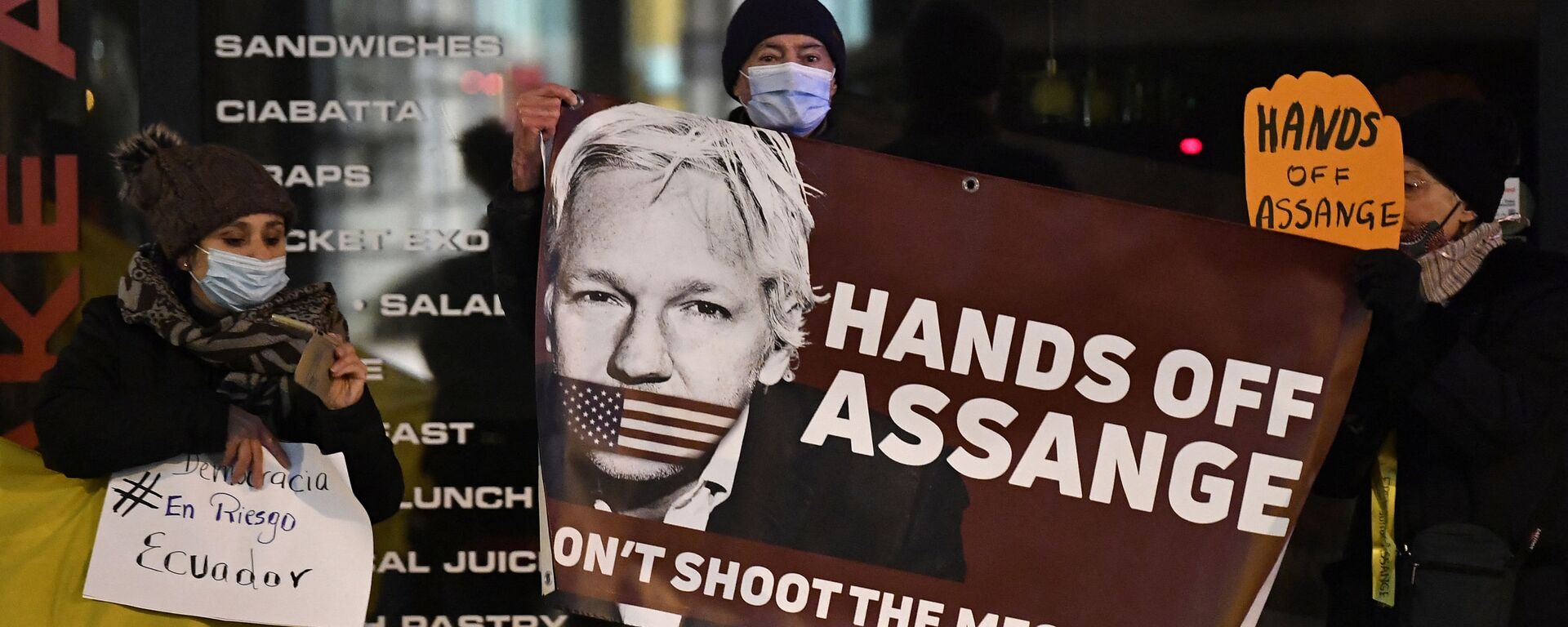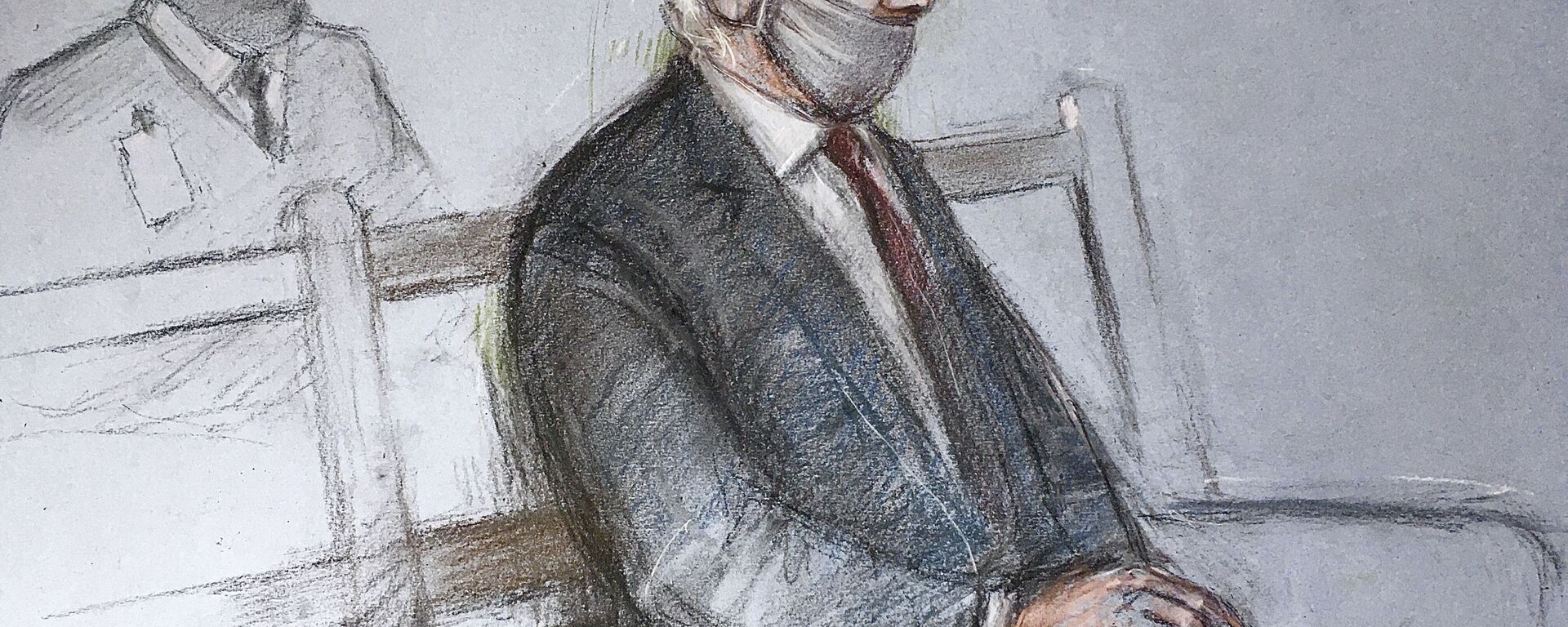UK High Court Rules US Appeal Can Proceed After Lawyers Claim Assange Healthy Enough for Extradition
16:16 GMT 11.08.2021 (Updated: 15:15 GMT 28.05.2023)

© Elizabeth Cook
Subscribe
In January, UK District Judge Vanessa Baraitser ruled that the Wikileaks founder could not be extradited to the United States for prosecution over the espionage charges against him, citing his poor health and the risk that he might try to take his own life in a US prison.
Attorneys representing the United States government have won the right to challenge the psychiatric report used by the defence to convince Judge Baraitser to bar Julian Assange from being extradited to the US on the grounds that he's at “real risk of suicide.”
In a Wednesday ruling, two judges from the High Court of London allowed US attorneys to continue their appeal of Baraitser’s ruling, claiming that the original psychiatric report “misled” the district judge.
The new ruling will allow lawyers to argue for the dismissal of the testimony of psychiatrist Michael Kopelman, which proved central to Baraitser’s January decision, on the basis that the mental health specialist had "concealed" the real nature of Assange’s relationship with his partner, Stella Moris.
“Experts aren’t allowed to mislead the court for any reason, let alone apparently…to protect the privacy of Mr. Assange’s family,” Clair Dobbin, an attorney on behalf of the US government, said. “We say that ought to have been of real concern to the court and it ought to have come to a much more exacting analysis of Professor Kopelman’s evidence.” The appeals court agreed with Dobbin’s assessment.
Dobbin further alleged that Assange had not shown signs that he's a suicide risk, saying that he “has not made the sort of serious attempt on his life or have the history of serious self-harm seen in other cases,” or exhibit signs of suffering a mental illness so severe “that the ability to resist suicide has been lost.”
She further pointed to his ability to function successfully in the “dire” conditions inside the Ecuadorian Embassy in London, where he was effectively imprisoned for seven years, and even to communicate with the outside world and host a television programme.
In her ruling in January, Judge Baraitser took account of Kopelman’s failure to inform the court about Assange’s relationship with Moris but determined that the decision to withhold this information did not affect the psychiatrist’s testimony and his status as an impartial witness on the issue of the WikiLeaks founder’s mental health.
Lord Justice Timothy Holroyde, one of the two appeals court justices presiding over Wednesday’s hearing, said the full appeal would be heard by the High Court on 27-28 October.
Nine Years’ Confinement
Assange appeared at Wednesday’s hearing via a video-link from Belmarsh Prison, where he has been locked up since May 2019 after being dragged out of the Ecuadorian Embassy following President Lenin Moreno’s decision to pull his asylum status. Moreno revoked Assange’s status after WikiLeaks reported on a corruption scandal involving his inner circle.
Assange received asylum in the Ecuadorian Embassy in 2012 over fears of political persecution and extradition to the United States via Sweden, where two women had accused him of sex crimes. The allegations against him were eventually dropped and he denied any wrongdoing throughout the affair. After removing him from the embassy, British authorities jailed Assange (initially for 50 weeks) in the country’s harshest prison, for breaching his bail in the already defunct Sweden sex crime allegations.
The WikiLeaks founder has been confined, either in the Embassy or a British jail cell, for over nine years and his family, including his father Richard Assange and partner Stella Moris, have expressed concerns about his physical and mental health.
Assange supporters gathered outside the Royal Courts of Justice compound in London for Wednesday’s hearing, with scores of civic leaders, activists, and politicians – including former Labour leader Jeremy Corbyn – coming out to show their support. Corbyn told reporters that the US government should “wind their necks in” and drop the charges against Assange. Other supporters held banners reading “no extradition” and “journalism is not a crime.”
@jeremycorbyn at Julian #Assange's preliminary appeal hearing at London's High Court today.
— Isabell Jeżek (@isabell_jezek) August 11, 2021
Condemning the threat to #pressfreedom which the US government is posing by seeking a foreign journalist's extradition. pic.twitter.com/MaHiOBeaGj
On Tuesday, Amnesty International called on US President Joe Biden to drop all charges against Assange, calling them politically motivated. Earlier this year, a host of media personalities from across the political spectrum, including Fox host Tucker Carlson and comedian Jimmy Dore, urged Biden’s predecessor, Donald Trump, to pardon Assange before he left office in January. Trump failed to do so.
Also on Tuesday, Moris urged Biden to free her fiancé, and blasted the US government for its exploitation of “inherently unfair extradition arrangements with [the UK] in order to arbitrarily prolong his imprisonment."
"For every day that this colossal injustice is allowed to continue Julian’s situation grows increasingly desperate,” she said.
The US Justice Department is seeking Assange’s extradition to the US on charges of espionage and computer fraud related to the publication of thousands of classified documents on US war crimes in Iraq and Afghanistan. The publisher could face up to 175 years in solitary confinement if convicted. Assange is an Australian national and doesn't hold US citizenship. In that regard, the US request for his extradition is a kind of test case, and, if successful, would allow Washington to demand the extradition of virtually any person from anywhere in the world, no matter their nationality.



